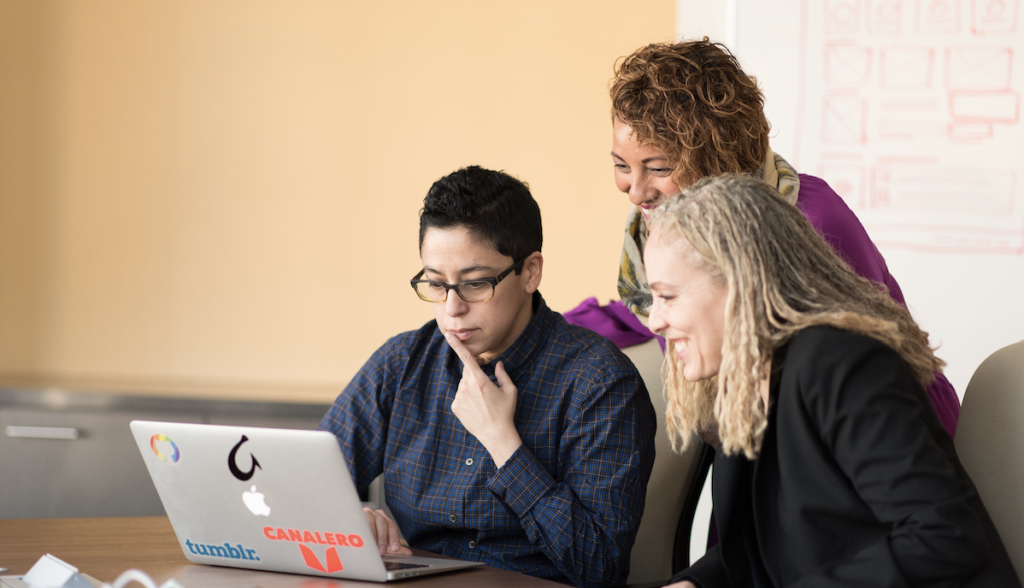If there were one thing you could do to eliminate health disparities or advance health equity, what would it be?
Dr. Leandris Liburd
This is a question that Dr. Leandris Liburd gets asked often, but it’s not one she’s fond of. The answer isn’t a simple one, and the COVID-19 pandemic has magnified that truth. There isn’t a magic pill to ensure that no one is denied the possibility of being healthy because they belong to a group that has been economically or socially disadvantaged. And measuring success is about more than data points.
Choosing one thing to advance health equity “is not possible when you’re dealing with these kinds of complexities,” Liburd said in an interview with GovLoop. “So we have to do a lot of things at the same time.”
Liburd is the Director of the Office of Minority Health and Health Equity at the Centers for Disease Control and Prevention. She is also rotating as the CDC’s Chief Health Equity Officer for the COVID-19 response — a newly created role and function that she worked tirelessly with colleagues to stand up in the midst of a global crisis.
Our August interview felt both urgent and insightful. It comes at a time when the COVID-19 virus is still raging, and the Biden administration is trying to assess equity across government agencies, programs, services and contracting practices. Health equity is a herculean task that Liburd has been advancing for decades within the health space.
We want to extract those parallels for the GovLoop community as rank-and-file feds and leaders grapple with equity in the context of their work.
To Liburd’s point of having to do many things at once to address inequities, we’re sharing some of the core tenets that can help all of us put a face and a name to equity: storytelling, awareness and education. These pillars help us understand its nuances beyond high-level concepts or policy documents and instead as a personal reality that impacts our lives, loved ones, colleagues and communities.
Awareness
We asked Liburd about the key equity issues or points that are core to her work, that she wishes people better understood. Here’s what she said:
• We are more connected to one another than might be apparent.
• When parts of our society have to endure long-standing inequities, there is a drain on the rest of the society.
• If we were able to have more equity, there would be a more universal opportunity to prosper.
“I think that’s a hard sell for a lot of people,” Liburd said. People typically think that if they are OK and have health insurance, benefits and a living wage, then everything’s good.
“But we’re actually just much more connected than that,” she said. “And so COVID has really demonstrated that for us in such a profound way.”
Education
We went on to ask Liburd what pushback she faces in her work around equity.
“Whose responsibility is it for us to ensure health equity for our entire nation?” is a common question. Liburd broke this question down in a way that anyone can apply to equity work, regardless of your agency or mission:
• Whose responsibility is it?
• Where do we start?
• How do we untangle systems to find the best point of entry to move practices and policies toward equity?
“I think that in a lot of instances, we are blind to the inherent, built-in structures that perpetuate inequity,” she said. “One of the things that’s hard in government is for us to essentially redirect or change the work that we’ve already committed to and have been doing.”
Her advice: Use a lens that will allow you to see where your work is perpetuating inequities and how to redirect your work toward equity. At the Health and Human Services Department, for example, the president’s executive order on racial equity is spurring HHS’s ongoing use of disparity impact statements to better identify and address inequities.
Storytelling
Liburd shared how her passion for storytelling has helped her and others advance equity.
“What I would say about storytelling is that it can take us out of the analytical and abstract, and represent health equity in real-life experiences,” she said, noting that her passion for storytelling likely emerged from her anthropology training.
Anthropologists are professional people-watchers, and Liburd is always listening and observing what’s happening in communities across the country, including her own, to pick up on nuances that a survey might not find.
Her advice: Use storytelling to connect with others. When people are able to connect on a more personal or social level, complex issues such as health equity become more accessible.
This article is an excerpt from GovLoop’s guide, “Conversations With CXOs: Your Crash Course on the Future of Gov.” Download the full guide here.
Photo by Christina @ wocintechchat.com on Unsplash
